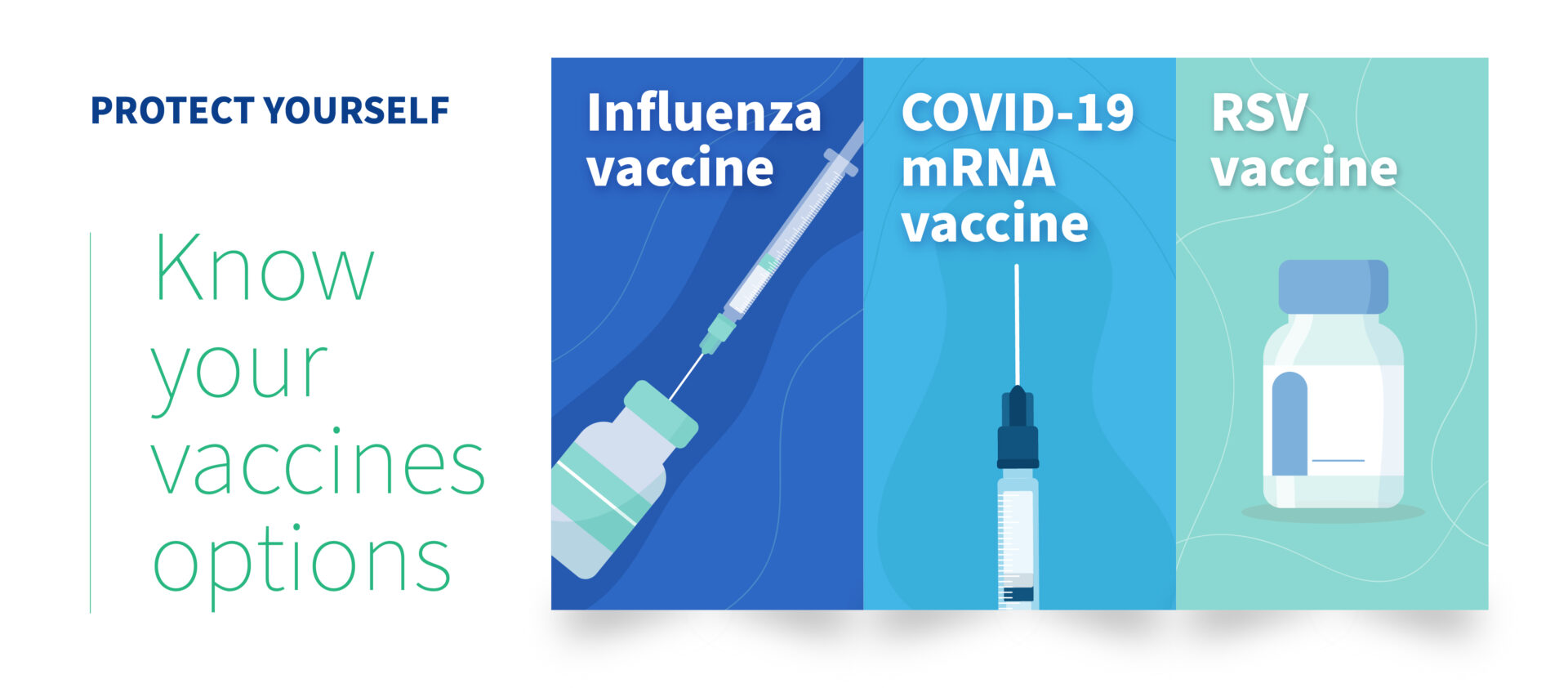As flu season approaches, it’s crucial to stay informed and take proactive steps to protect yourself and your loved ones. The evolution of the pandemic has disrupted the seasonality of some respiratory viruses like influenza, Respiratory Syncytial Virus (RSV), and COVID-19. In the last flu season, we saw an early start, peak, and finish, before the holidays. The good news is that we haven’t observed much influenza yet, with most cases acquired through travel. However, RSV rates do appear to be starting to climb now. COVID-19, on the other hand, has had moderate to high levels of community transmission for the past several weeks.
Dr. Anthony La Delfa, an infectious disease specialist and interim chief of medicine at Oak Valley Health, offers some valuable insights and tips to navigate this unique and challenging season.

What vaccines are currently available?
To protect yourself, knowing your vaccine options is essential:
- Influenza vaccine: This vaccine is recommended for everyone six months and older, especially the elderly and those with multiple risk factors.
- COVID-19 mRNA vaccine: A new vaccine targeting the XBB.1.5 recombinant lineage of COVID-19 is now approved and available (both Pfizer and Moderna). It can help prevent the spread and reduce the severity of COVID-19. One dose of this vaccine is recommended if it’s been more than six months since your last COVID-19 vaccine or infection.
- RSV vaccine: This vaccine was recently approved, but currently is only covered by the government for those aged 60 and older and who reside in a long-term care home, elder care lodge and some retirement facilities. Although many will need to pay out of pocket, this vaccine is expected to be significantly beneficial to individuals aged 60 and older, as RSV infection is a frequent cause of hospitalization and sometimes death in those with multiple comorbidities.
Can you take all the vaccines together?
You may receive the influenza and COVID-19 vaccines at the same time. For those considering multiple vaccines, remember to wait at least 14 days after receiving the RSV vaccine before getting another one. The reason being that with this vaccine being newer, by spacing out this one from other vaccines, effectiveness and potential side effects can be more closely monitored.
Who shouldn’t take all the vaccines?
In general, COVID-19 and flu vaccines are recommended for most individuals. However, given the newness of the RSV vaccine, there may not be enough data from clinical trials to support its safety for certain populations, such as very young children and pregnant and breastfeeding individuals. It’s crucial to consult with your health care provider to determine the best course of action for your specific situation.
Guidance for staying healthy
Here are some considerations from Dr. La Delfa to help you stay healthy during this challenging season:
- Get vaccinated: Don’t skip your flu and COVID-19 vaccines, especially if you’re in a high-risk group.
- Transmission periods: Be aware that the flu and RSV are more transmissible during symptomatic periods, while COVID-19’s contagious window is still a topic of discussion. Stay vigilant.
- Fever and symptoms: Remember that you’re contagious until you’ve been fever-free for over 24 hours, and your symptoms are improving.
- Socially distance when necessary: To mitigate the risk, avoid large gatherings if you’ve had symptoms and continue practicing diligence in your daily life.
While COVID-19 is still not seasonal, it’s vital to adapt to the changing landscape of respiratory viruses. Despite fewer ICU patients, hospitalizations persist. These viruses haven’t become less severe, but our growing immunity plays a crucial role. Possibilities of transmission remain high, but by following these tips and staying informed, you can protect yourself and your community during this challenging flu season.
Subscribe
This article appeared in the November 2023 issue of The Link. To receive Oak Valley Health’s community newsletter, subscribe now.
